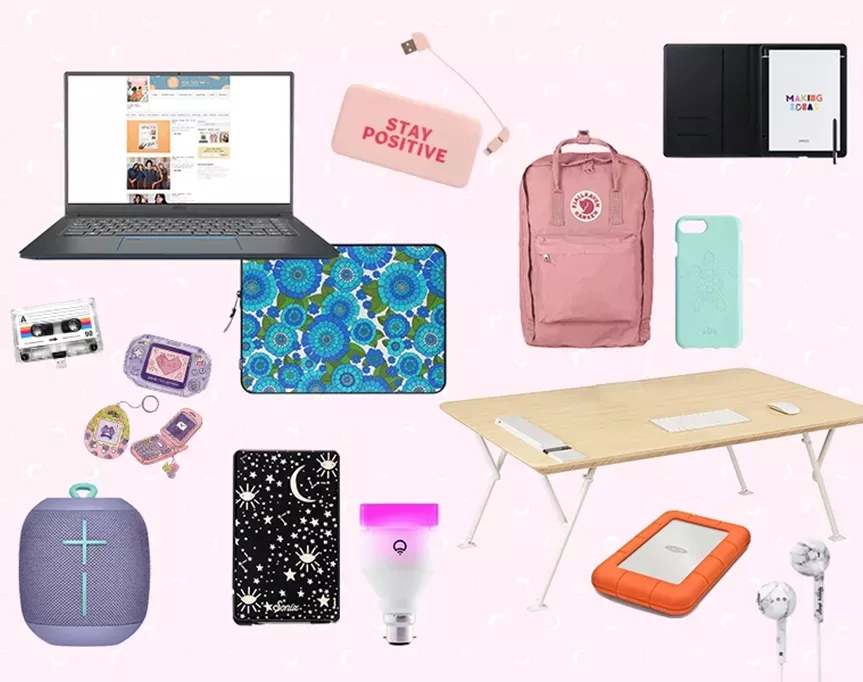zara seidler is helping make the news more accessible
And why she thinks more young people should pay attention to current affairs.
Zara Seidler has always had a fascination with the news and has been breaking down complex issues for people for years before she co-founded The Daily Aus alongside Sam Koslowski in 2021, which has been providing bite-size news stories for people who can’t understand the specific jargon of mainstream journalism.
Recently, Zara took some time out to have a chat with us about why The Daily Aus came to be, what the news can offer young people, and her new book, No Silly Questions, which you can peruse down below.
Hi there Zara! Tell us a bit about what you do. My name is Zara Seidler, and I'm the co-founder of The Daily Aus which is a social-first news service, aiming to engage the current and the next generation.
How would you describe your own kind of personal journey and connection with the news? I've always been obsessed with everything going on in the news. As a child, I'd walk out of my bedroom and just deliver my brothers whatever bad news I had for the day, I've always been obsessed with this idea of sharing information. I didn’t know how to make this part of my career, and I studied political science when I was at uni. When I left I regained this passion with the news, and that’s when the seeds of The Daily Aus were sown.
You’ve mentioned that The Daily Aus is fully digestible and accessible to everyone. Do you think that there is a communication barrier between other news outlets and their readers? I do. I think, specifically when we're talking about a younger audience, I think there's been a bit of an issue in the past with speaking down to your audience rather than across to them. If you look at the biggest media companies, often the people at the top are not the people that you're trying to reach. I think, for us, it’s important for us to strip away all that jargon and any kind of assumed knowledge and just tell people the basics.
What is it like navigating the news in a primarily digital space? There are challenges, but I think that being online means that we are interacting with people who maybe aren't necessarily looking for the news. We often refer to this idea of ‘passive news consumers’ as somebody who might be scrolling through Instagram and then see us.
Do you think that making the news accessible on social media has helped young people engage with the news more often? When we started, we wanted our target audience to be young people because we looked at the rest of the media market, I saw that they were underrepresented and underserved in what the news market could offer them. We don't say that our site is only for young people, but still have young people in mind. We love pop culture, but that doesn't mean that young people don't care about current affairs, either.
What news do you wish more people, especially young people, were more aware of? I think it’d be remiss of me not to talk about Voice to Parliament. I think it's the perfect opportunity to just spell out everything that our audience needs to know about how referendums work; all of the mechanics behind the scenes, not necessarily just the concept itself, but explaining the background so that everyone goes in feeling informed. I think those conversations are really important.
What are some of the topics that you’ve found your audience are most concerned with? Climate. Before the last election, we did a bunch of polling to understand what was really important and climate was at the top of the list. I think, since that time, the climate crisis has really become more drastic, and I think a lot of young people are deeply concerned. The housing crisis as well, since the vast majority of young people rent and it’s becoming even more difficult to buy a house.
What advice could you give to other women trying to navigate the male-dominated news industry? It’s been a really interesting journey. The Daily Aus has a male co-founder, and that in itself has been interesting for us to see how people talk to us when we’re together and then we we’re solo. My advice would be that other people will doubt you, but that doesn't mean that you have to question yourself. I always get asked about my ‘imposter syndrome’ and I always find that my co-founder is not asked the same thing. We are constantly casting doubt on women and asking them whether or not they feel like they should be questioning where they're at career-wise, and I think we should start supporting them instead of doubting them.
What inspired you to write No Silly Questions? We, Sam and I, wanted to put all the information in the news that we thought was important and wanted to tell our audience. The book was an opportunity to just create a bit of a cheat sheet for how the world works. We want it to be a book that you read before you read the news, and hopefully, it'll be helpful for some people!
What do you hope readers will get out of No Silly Questions? I hope that it will empower readers to start having harder conversations like how our political system works, or economics, climate or social issues. We really want people to have a physical database of knowledge. We just want everyone to know that the news is for them, not just a specific subset of our society.















.jpg&q=80&w=316&c=1&s=1)













.jpg&q=80&w=316&c=1&s=1)










